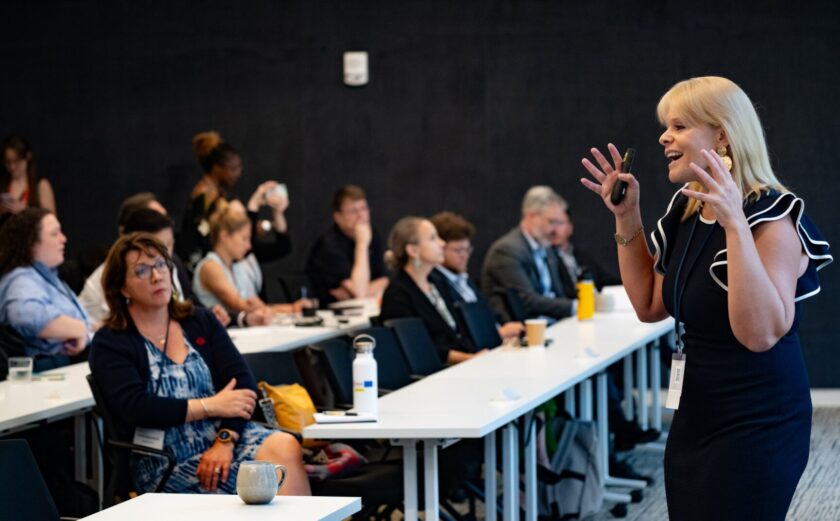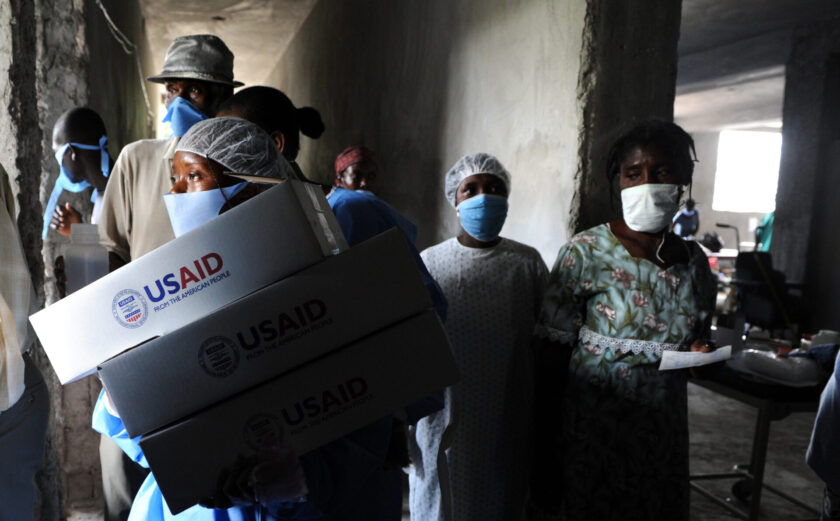Mounting Challenges Won’t Deter NGO Community
The environment in which the U.S. NGO community and its global partners operate in has been rife with changes and challenges over the last two years. Yet, in the face of growing international crises associated with fragility, decreased tolerance of civil society, increased hatred and racism, and political threats to budgets, our community has persisted and stood together in solidarity. As we look toward a new year and brace for new challenges, our shared values will continue to give us strength to defend a diverse community of nonprofits, while our openness to change will help us constantly adapt and remain true to our varied missions despite growing external pressures.
When the Trump administration took office, we knew that we would have to confront a decline in U.S. government foreign engagement, with likely budget cuts to programs focused on eliminating poverty and efforts supporting people-centered programs. We also knew that these budget cuts would occur in a world of increasing need. This was to be expected. What we did not know was that U.S. nonprofits and the vulnerable people we support would simultaneously be targeted by hatred and lies.
InterAction members and partners have responded admirably with principled solidarity that has strengthened the culture of our community. When a member was under assault, the rest of the community rallied to their side to voice support and, when it has been necessary, pursued efforts to protect them. This collective action is grounded in shared principles of promoting human dignity around the world. We have acted together, despite differing missions, and have found our action strengthened by our membership’s diversity across political divides, faiths, and regions of the country, and will continue to do so moving forward
We will continue to speak up against the irrational fear and hatred that targeted populations may confront as another aspect of our adaptation to meet the new political atmosphere. Increased hatred has been directed towards vulnerable people, such as the migrants currently travelling from Central America. Our organizations will continue to provide relief and assistance for families, such as these, who are fleeing violence or simply seeking a better life. However, we will also combat lies that may demonize the world’s vulnerable so that we, as a country, can remain true to our core principles and concept of truth. We will be both advocates for the causes we believe in and defenders of our shared values.
As we have confronted immediate change, brought on by a transformed political culture, the U.S. NGO community has also continued to adapt, trying to maintain its relevance in the face of broader trends such as increased global displacement, and environmental, economic, and technological shifts. A commitment to our respective missions encourages each organization to continue pursuing pragmatic solutions despite adversity or headwinds. I have seen NGOs create space for experimentation through commitment of resources, as they build new partnerships with a wide variety of actors who share common goals. These adaptations and related transformations help ensure the sector’s resilience, and ability to solve new challenges as they arise in the future.
These political and structural trends will most likely continue and maybe even accelerate. In the face of unanticipated challenges, we must not only be open to change, but also remember to keep our work centered on principles, drawing on growing expertise to pursue new solutions and purpose.








